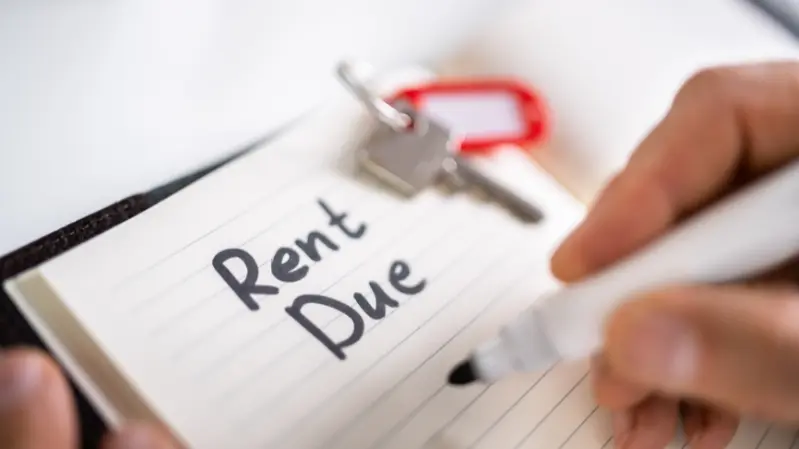Felons can benefit from programs designed to help low-income households. These grants for felons in Arizona don’t have to be paid back and make essentials like food, medical care, and housing more affordable. Felons can also access career-boosting grants for education and training.
Basic Needs Grants For Felons in Arizona 2025

Get government-funded grants to ease the cost of living. Most financial assistance programs don’t include a background check – your eligibility will be based on your income, citizenship status, and household size.
Supplemental Nutrition Assistance Program (SNAP)
SNAP gives eligible households money to spend on groceries each month. The amount you get depends on your income and household size.
A single-person household with a countable income of less than $2,321/month can get up to $292, while a family of 3 making less than $3,981 can get up to $768.
Arizona’s Double Up Food Bucks makes SNAP benefits go even further. By shopping for fresh fruits and vegetables at farmers and community CSA markets, you get an extra $1 worth of produce for every $1 you spend, enabling you to take home twice as much produce.
Read More: https://des.az.gov/services/basic-needs/food/nutrition-assistance/faqs
Monthly Cash Grant For Families
Felons with dependent children (and pregnant women) may be eligible for a monthly cash grant from the Temporary Assistance for Needy Families (TANF) program. TANF cash can be used for almost any purpose, unlike SNAP benefits, which can only be used to buy food.
Income limits apply and participants are expected to comply with the requirements of the Jobs Program.
A 3-person family with countable income under $2,152/ month can receive up to $347 for 12 months.
Grant Diversion Program
The Grant Diversion Program in Arizona is a cash assistance option for people in urgent financial need (after a job loss for example).
Instead of receiving a monthly payment from the TANF program, eligible families can get a larger, one-time payment to help cover immediate expenses, like rent, utility bills, or car repairs.
To qualify, participants must meet TANF income requirements, and show they have a short-term financial need but can likely regain financial stability without long-term help.
Read More: https://des.az.gov/services/child-and-family/cash-assistance/grant-diversion-program
Hardship Grants Arizona
Hardship grants offer emergency support to low-income families with dependent children. Support from the Short-Term Crisis Services program can include help paying rent or mortgage, utility bills, and security deposits.
Read More: https://des.az.gov/stcs
Utility Bill Assistance
These Arizona grants for individuals and families help low-income households afford utility bills. There aren’t any restrictions preventing felons from receiving utility bill assistance.
Low Income Home Energy Assistance Program (LIHEAP)
Eligible households may receive up to $640/year to help cover heating and cooling costs, with an additional $500/year available for crises like preventing a utility disconnection.
Income limits apply. A single-person household can qualify with a monthly income below $2,646 after allowable deductions.
Funding for the program is limited, and grants are awarded on a first-come, first-served basis, so it’s best to apply as soon as the program opens each year.
Read More: https://des.az.gov/liheap
DES Utility Assistance Program
Arizona’s Department of Economic Security runs a utility assistance program that helps low-income households with past-due bills pay for electricity, gas, and water.
Financial assistance is available year-round, and the program can also help with utility deposits and payments to avoid disconnection.
Applications are handled by local Community Action Agencies (CAAs)
Find the CAA for your county: https://des.az.gov/CommunityActionAgencies
The Home Energy Assistance Fund (HEAF)
HEAF can help you pay for heating and cooling costs and weatherization services. It may also pay for appliance repair or appliance replacement for better energy efficiency.
Read More: https://wildfireaz.org/find-help/energy-assistance/
Other Sources Of Utility Bill Assistance
Charities including the Salvation Army, Catholic Charities, and The Society of St. Vincent de Paul USA, may be able to help you if you’re behind on your bills. Rent assistance may also be available. Call the free 2-1-1 helpline to find local resources.
Get Free Phone Calls
Low-income felons can qualify for a Lifeline Phone plan and benefit from free phone calls and texts plus 4.5 GB of data/month.
Income limits based on household size apply. For example, a single-person household earning less than $23,331 will qualify.
You’ll automatically qualify if you receive government benefits like SNAP, TANF, Section 8, Medicaid, or Supplemental Security Income.
Read More: https://lifewireless.com/plans/arizona-lifeline-free-phone-service
Grants For Healthcare
The Arizona Health Care Cost Containment System (Medicaid) provides comprehensive free or low-cost health cover to low-income individuals and families.
The program includes doctor visits, hospital stays, prescriptions, mental health care, and more. Many services provided through the AHCCCS are free or have a low copay.
Eligibility depends on your income and household size and is based on the federal poverty level. Adults (19-64 years) can earn up to 138% FPL, while families with children under 19 can earn up to 200% of the FPL.
For example, a single person can qualify with an income below $1,677/month, while a three-person family with a child under 19 can qualify with an income below $4,660/month.
Related Post: Grants For Felons in Tennessee
Rent Assistance Grants For Felons in Arizona

Government-funded rent assistance, commonly known as Section 8, is the only grant program that requires applicants to pass a criminal background check. But that’s not as scary as it might seem.
The Public Housing Authorities that run the rent assistance program assess offenses on a case-by-case basis, taking into account the age and nature of the conviction, and your rehabilitation efforts.
Wait lists for PHA programs are common but once you’re in the program the amount you need to spend on rent is capped at 30% of your adjusted income.
Find your local PHA: https://www.hud.gov/program_offices/public_indian_housing/pha/contacts
Education And Employment Grants
Getting the skills and qualifications you need is more affordable than ever thanks to grants for low-income students and programs that help felons with employment.
Federal Pell Grants: Up to $7,395/year is available to students studying for a degree or trade school certification.
Federal Supplemental Educational Opportunity Grant: Provides additional funding worth up to $4,000 per year for students with exceptional financial need.
Learn about federal education grants: https://studentaid.gov/understand-aid/types/grants
Arizona Leveraging Educational Assistance Partnership: This need-based grant provides up to $2,500 per year in funding for low-income students attending Arizona colleges or universities.
Read More: https://www.azregents.edu/programs/scholarships-assistance/azleap
Workforce Innovation and Opportunity Act (WIOA): The WIOA delivered through Arizona At Work can help you get training and certification in fields like healthcare, construction, technology, transportation, and manufacturing. Paid on-the-job training may also be available.
Read More: https://arizonaatwork.com/
Work Opportunity Tax Credit (WOTC): The WOTC is an incentive encouraging employers to hire felons within one year of conviction or release from incarceration. Get a letter from your Job Center to show potential employers the financial benefit of hiring you.
Federal Bonding Program: This employer incentive can tip the scales in your favor when you apply for a job. Employers can get free insurance on felons to cover up to $5,000 of losses caused by dishonest acts.
Read More: https://des.az.gov/services/employment/employers/federal-bonding-program